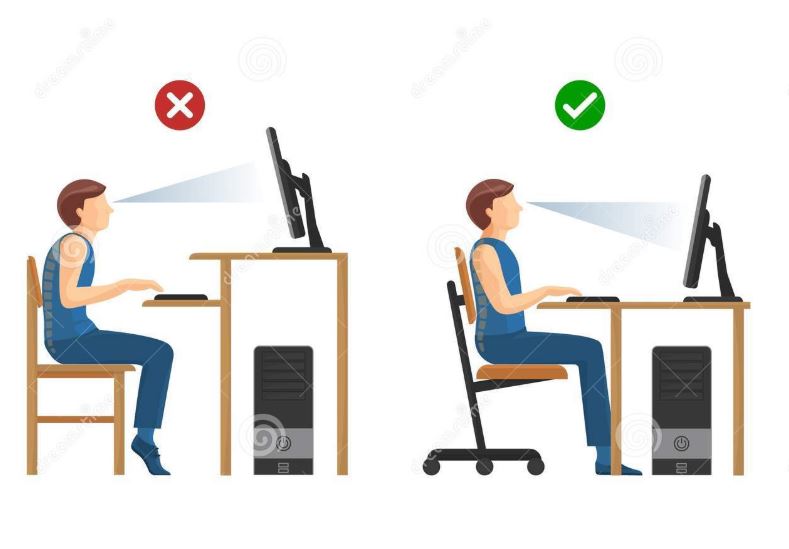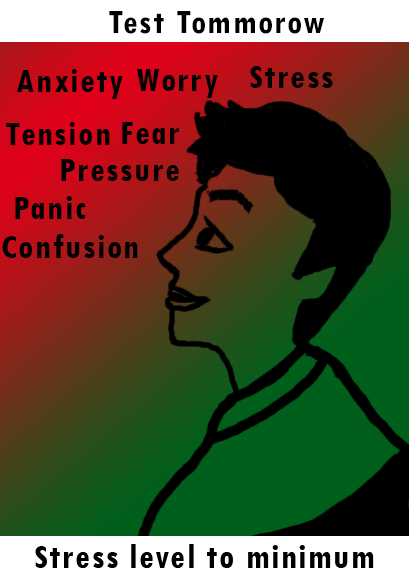ORELA Middle Grades English Language Arts Exam
The Oregon Educator Licensure Assessments (ORELA) Middle Grades English Language Arts Exam is a critical step for prospective educators who wish to teach English Language Arts in middle schools across Oregon. This exam assesses the candidate's understanding and proficiency in essential English language arts concepts and teaching methodologies, ensuring they are well-prepared to foster a rich learning environment for students in grades 5-9. As a comprehensive evaluation, the ORELA exam covers a wide range of topics, including literature, language development, writing, and communication.
Eligibility
To be eligible to take the ORELA Middle Grades English Language Arts Exam, candidates must meet specific requirements set by the Oregon Teacher Standards and Practices Commission (TSPC). Primarily, candidates should have completed or be in the process of completing a teacher preparation program that includes coursework in English language arts. Additionally, candidates must hold at least a bachelor's degree from an accredited institution. It is also recommended, though not mandatory, that candidates have some classroom experience or student teaching experience in middle grades to better understand the practical application of the concepts covered in the exam.
Syllabus
The ORELA Middle Grades English Language Arts Exam is designed to evaluate a candidate's mastery over several key areas essential for effective teaching. The syllabus is broadly divided into the following domains:
- Reading and Literature: This section tests the candidate's ability to understand, interpret, and analyze different genres of literature, including fiction, non-fiction, poetry, and drama. Understanding literary elements, techniques, and historical contexts are crucial.
- Language Development and Use: Candidates must demonstrate knowledge of the English language's structure, including grammar, syntax, and semantics. This section also covers language acquisition and development, focusing on how students learn and use language.
- Writing Process and Applications: This area assesses the candidate's understanding of the writing process, including prewriting, drafting, revising, editing, and publishing. It also covers different types of writing, such as narrative, expository, persuasive, and descriptive.
- Speaking and Listening: Candidates must show proficiency in teaching effective communication skills, including listening comprehension, oral presentations, and collaborative discussions.
- Research and Inquiry Skills: This section focuses on the ability to guide students in conducting research, evaluating sources, and presenting information effectively.
Format of the Exam
The ORELA Middle Grades English Language Arts Exam is typically administered in a computer-based format, providing a flexible and accessible way for candidates to complete the assessment. The exam consists of multiple-choice questions, constructed-response assignments, and other question types designed to assess a wide range of skills and knowledge.
Multiple-Choice Questions: These questions test the candidate's knowledge and understanding of the key concepts in English language arts. They require candidates to select the best possible answer from a list of options.
Constructed-Response Assignments: These questions require candidates to produce a written response, demonstrating their ability to apply their knowledge in practical scenarios. This section evaluates the candidate's writing skills, analytical abilities, and depth of understanding.
The exam is timed, with a total testing period that allows candidates sufficient time to thoughtfully consider each question. It is essential for candidates to manage their time effectively during the exam to ensure they can complete all sections.
Upon completion, the exam is scored based on the number of correct answers in the multiple-choice section and the quality of responses in the constructed-response section. A passing score is required to demonstrate the candidate's readiness to teach English Language Arts at the middle school level.
In conclusion, the ORELA Middle Grades English Language Arts Exam is a comprehensive assessment that plays a pivotal role in the certification process for future middle school English teachers in Oregon. By evaluating a candidate's proficiency in reading, writing, language development, and communication, the exam ensures that educators are well-equipped to inspire and educate the next generation of students.
ORELA Middle Grades English Language Arts Exam Study Guide
A Complete ORELA Middle Grades English Language Arts Exam Study Guide that includes sample questions, test tips and a complete study plan prepared by a team of expert and dedicated researchers. Cost-effective and qualified exam help from a committed exam preparation company.
ORELA Middle Grades English Language Arts Secrets (printed book)
ORELA Middle Grades English Language Arts Secrets (ebook access)
Oregon biology licensure certification test
The Oregon Biology Licensure Certification Test is a crucial step for aspiring biology educators who wish to teach at the secondary level in the state of Oregon. This certification ensures that teachers possess the necessary knowledge and skills to effectively educate students in the field of biology. This article provides comprehensive information about the eligibility criteria, syllabus, and format of the exam to help candidates prepare for this important assessment.
Eligibility
To be eligible for the Oregon Biology Licensure Certification Test, candidates must meet specific educational and professional requirements. Firstly, they must hold at least a bachelor's degree in biology or a closely related field from an accredited institution. Additionally, candidates should have completed a teacher preparation program that includes student teaching experience. This program should be recognized by the Oregon Teacher Standards and Practices Commission (TSPC).
Furthermore, candidates must pass the required background checks and meet any other state-specific requirements for teacher licensure. It is also recommended that candidates possess a strong understanding of pedagogical techniques and have a passion for teaching biology to diverse student populations.
Syllabus
The syllabus for the Oregon Biology Licensure Certification Test is designed to assess a candidate's knowledge and understanding of fundamental biological concepts, as well as their ability to apply this knowledge in a classroom setting. The syllabus is divided into several key areas:
- Cell Biology: This section covers the structure and function of cells, including cell membranes, organelles, and cellular processes such as respiration and photosynthesis.
- Genetics and Evolution: Candidates will be tested on principles of heredity, Mendelian genetics, molecular genetics, and evolutionary theory, including natural selection and speciation.
- Ecology: This area focuses on ecosystems, energy flow, biogeochemical cycles, population dynamics, and interactions between organisms and their environments.
- Human Biology: Topics include human anatomy and physiology, systems of the human body, and the impact of diseases on human health.
- Diversity of Life: Candidates should understand the classification of living organisms, the characteristics of different kingdoms, and the evolutionary relationships among various life forms.
- Scientific Inquiry and Methodology: This section evaluates a candidate's ability to design experiments, analyze data, and apply scientific reasoning to solve problems.
In addition to these core topics, candidates should be prepared to demonstrate their understanding of current scientific issues and advancements in the field of biology.
Format of the Exam
The Oregon Biology Licensure Certification Test is typically administered in a computer-based format. It consists of multiple-choice questions, short answer questions, and essay-style questions that assess both content knowledge and pedagogical skills. The exam is designed to evaluate a candidate's ability to not only recall biological facts but also apply this knowledge in practical teaching scenarios.
The multiple-choice section tests a candidate's understanding of key biological concepts and principles. It requires candidates to select the most appropriate answer from a list of options. This section is designed to assess a broad range of topics within the biology syllabus.
The short answer section requires candidates to provide concise responses to questions that test their ability to apply biological concepts to specific situations. This section may include questions that require candidates to interpret data, explain biological processes, or solve problems related to real-world scenarios.
The essay-style questions are designed to evaluate a candidate's ability to communicate complex biological ideas effectively. Candidates may be asked to discuss a particular biological topic, analyze a case study, or propose solutions to hypothetical teaching challenges. This section assesses a candidate's ability to construct well-organized and coherent arguments.
The exam is typically timed, and candidates should ensure they manage their time effectively to complete all sections within the allotted period. It is important for candidates to familiarize themselves with the exam format and practice answering questions under timed conditions to build confidence and improve their performance.
Conclusion
The Oregon Biology Licensure Certification Test is a comprehensive assessment that evaluates a candidate's knowledge of biology and their ability to apply this knowledge in a teaching context. By understanding the eligibility criteria, syllabus, and exam format, candidates can better prepare for the test and increase their chances of success. Aspiring biology educators should focus on building a strong foundation in biological concepts, staying updated with current scientific developments, and honing their teaching skills to excel in this certification exam. Successfully passing the Oregon Biology Licensure Certification Test is a significant step towards achieving a rewarding career in biology education within the state.
ORELA Biology Exam Study Guide
A Complete ORELA Biology Exam Study Guide that includes sample questions, test tips and a complete study plan prepared by a team of expert and dedicated researchers. Cost-effective and qualified exam help from a committed exam preparation company.
ORELA Biology Secrets (printed book)
How to study on computers for a test
With 2020 pandemic world is going through, most of the learning has become online. Tests are also computer-based assessments. Hence at www.examsample.com, we thought it best to write a few tips and tricks on how to study and practice on computers. We will also introduce some terms which you may or may not know. But it should be a good read if you have come on this page.
Study on table and chair

When you are using laptop or desktop for your studies or test preparation always sit on table and chair. By doing this
- You can keep you neck straight and at a distance
- Relax shoulders parallel to the floor
- Minimal bend at the wrist
- Using chair you can keep your back straight and relaxed
Take breaks
While studying on laptops/computers it's important to take a break. After every 30-60 min, have a small walk, take a beverage, and relax. Doing this makes you feel less tired, muscles get a bit of exercise and also your body feels reactivated
Know your system well
It's very important that you are very familiar with your system capabilities. A good example is the popup blocker or an ad blocker. At times are you are not able to see the content. Look out for a popup blocker in your machine. Similarly, your system should be well updated with anti-virus. This helps any malicious application getting into your system.
Internet
It's very important to ensure you have the right internet speed. Before giving any test, its okay to check with your internet provider if there is a planned outage in your area.
Sample Study guide
Always give sample computer based assessment to familiarize yourself how the questions will appear in the examination
Anxiety before the test

There are many students, test seekers who complain being more stressed by tests and by schoolwork than by anything else in their lives. The anxiety of the outcome of the test pounds heavy on their thought. About 16-20% of students have high test anxiety, making this the most prevalent scholastic impairment in our schools today. Another 18% are troubled by moderately-high test anxiety. (Statistics from American Test Anxieties Association web portal).
Examsample.com recommends every test seeker to follow a few points to reduce their anxiety level.
Believe in what you have prepared
You have worked very hard till now. If its a day before the test or on the day of the test, believe in all that you have prepared. You have read the right books, study guides, practiced sample papers. There is nothing more any other person will do. Why worry!
If you have an anxiety level a month before the exam, then it's the right time to start preparing. At no point, I am saying you should start studying a month before for any test. But if you have not, its high time not to wait any longer. Any test which you need to appear needs a methodical way of preparation that cannot start a night before the exam.
Relax and Relax before the exam
When you have prepared for the exam, its obvious about the question your mind will to go,"Is my preparation adequate"?. For me, the answer has always been yes. Do you know why.... There is hardly i can do anything 5 mins before the exam. The only thing i can do is to relax. Be confident. And let my thoughts know, I am confident whatever comes, I will be able to reach my goals.
Anxiety level a night before exam
I have heard from lot of examsample.com users that they get stressed out the night before the exam. The simple answer I have given them, please revise each and every topic which is giving you anxiety. Everyone has some topic which they don't feel confident. Its a good idea to give some importance to that topic. Use study guide, use sample questions, use books, use flashcards to revise the topics where you have concerns.
I have also got questions like i have not prepared at all, and tomorrow is my test. If I fail what will happen. My only piece of advice is to go ahead read the study guide, do selective study, use flashcards. No one knows you are the lucky one. Whatever you have prepared, may make all the sense in the exam and you are able to succeed. But being nervous or anxious and not doing anything doesn't help the cause.
Sleep and good food
Good nutritious food will always help you to sleep well. Remember, food has nothing to do with your preparation for the test. It's an enabler which means if your stomach is empty then you cant study. But if you had nutritious, mouth-watering food then you not only study well but also have a good sleep at night. A good sleep before the exam is very important. It helps you remain fresh. And for sure there are some bonus marks you will get if your body is relaxed and is able to concentrate at the question on hand rather than an anxious mind, deprived of sleep and foodReach well in time before the exam
One thing which has always helped me and users of this portal, is by maintaining the advice of reaching the exam place in time. There is no rush because of traffic from your home to the test center. You have left some time to get accustomed to the surroundings. See your friends, if anyone is giving a test with you. Have some time to take a sip of water. Check if you have admitted card, necessary tools to give the exam. All these will for sure calm your nerves and you will feel much more confident
Early Childhood Special Education Free Sample Questions

Teacher Certifications
ILTS Childhood Special Education PLACE Early Childhood Special Education Exam MTTC Early childhood exam AEPA Early Childhood Education Exam
Free Practice Questions
- Ms. Graham an early childhood special education teacher, has concerns about a child speech. She wants to know if this is an existing disorder. What steps would she take
- Review child historical records
- Conduct formal assessment
- Conduct conference call with parents and let them be aware of the concern she has
- Record student interactions in a small group and assess
- Dhruv is a kindergarten student whose family doesn’t speak English in home and he speaks no English himself. Which of the behavior teacher would observe in the class >
- Dhruv is likely to observe other students and be silent
- Dhruv is like to communicate freely in his home language
- Dhruv may try to learn English
- Dhruv may speak both the languages
- Out of the options given, which one is the most important consideration when selecting a toy for infants and toddlers
- Toys which could improve cognitive skills
- Home kitchen set with spoons and knifes
- Safe, functional and easy to maintain
- Toys which could bring hand eye co-ordination
- Which of the following gross motor skills which are generally achieved around the age of 6 months
- Walking
- Creeping on both hands and knees
- Sitting without support
- Crawling up stairs
- Ms. Ho has just joined ABC ISD as a early childhood special education teacher. Ms. Julian who has been in this field for last fifteen years has been assigned as a mentor of Ms Ho. Of the following which one is the primary advantage of this arrangement
- To resolve any conflict between parents and teacher
- Ms. Ho will have an access to effective teaching methodologies
- Ms. Julian will be of remedial help in subject areas where Ms. Ho has been struggling
- Ms. Ho can turn to Julian for all areas for help with problem solving on an ongoing basis.
Answers
- A
- A
- C
- D
- D


